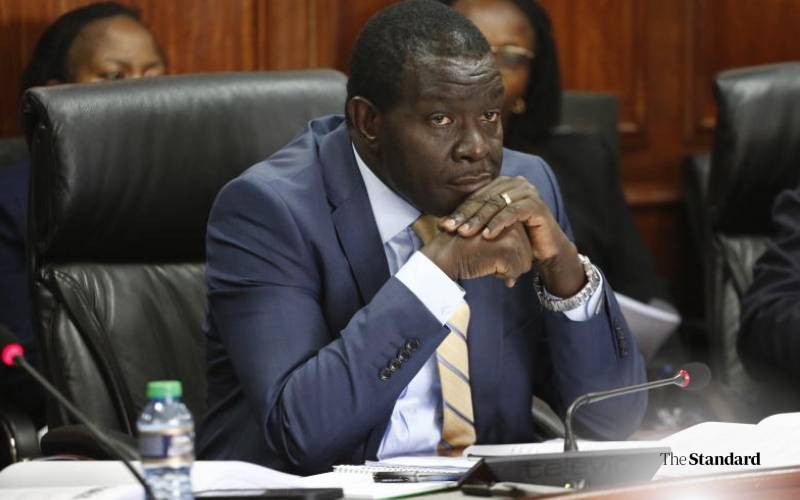The Employment and Labour Relations Court has invalidated more than 200 staff promotions at the Office of the Attorney General for a lack of competitive and merit-based processes in the appointments made late last year.
In a judgment delivered by Justice Byram Ongaya on Thursday, the promotions announced by Solicitor-General Shadrack Mose via a memo dated November 26, 2024, were declared “unconstitutional, irregular, null, and void.”
“The entire process resulting in the promotion of all the officers as communicated by the Solicitor General is hereby quashed,” ruled Justice Ongaya.
He added that the promotions failed to adhere to constitutional requirements on fair competition, transparency, and representation.
The court’s decision follows a petition filed by Nakuru-based surgeon Dr Benjamin Magare-Gikenyi and two others, challenging the legitimacy of the appointments.
They argued that the promotions contravened established human resource procedures and reflected bias in terms of gender and ethnic representation.
According to court papers, the affected promotions include high-ranking positions such as Senior Deputy Solicitor General, Deputy Solicitor General, Chief State Counsel, Deputy Chief State Counsel, and Principal State Counsel.
The petitioners claimed that despite vacancies being advertised by the Public Service Commission (PSC) in 2023 and early 2024, the final promotions were executed without interviews, shortlisting, or any competitive process.
“Of the 15 persons promoted to the Deputy Solicitor General positions, 12 were women, suggesting gender bias. Nine hailed from the same ethnic community, the Kikuyu, breaching the requirement for ethnic and regional balance,” Magare told the judge.
The petitioners also raised concerns over the long-term impact of these promotions on departmental competence, citing that the only qualified legislative drafter in the team was nearing retirement with no clear succession plan in place.
Justice Ongaya further declared amendments made to the Office of the Attorney General Act via the Statute Law (Miscellaneous Amendments) Act, 2024, as unconstitutional.
These amendments had effectively transferred certain Public Service Commission functions to an internal Advisory Board chaired by the Attorney General.
The court found this move to be a serious breach of constitutional principles.
Stay informed. Subscribe to our newsletter
“The amendments inherently breached the constitutional prescription on independent offices and commissions,” Justice Ongaya ruled.
In his findings, the judge noted that the amendment was passed without sufficient public participation and allowed an internal board, lacking legal authority, to usurp the PSC’s constitutional mandate.
“How then is the Attorney General the Chairperson of the Board and to be advised by the same Board? The roles are blurred and free from express regulatory or oversight authority,” the Judge observed.
Justice Ongaya emphasised that all appointments and promotions within the Attorney General’s office must fall under the oversight of the Public Service Commission as per Article 234 of the Constitution.
“The court returns that the impugned amendments were unconstitutional,” read part of the judgment, adding that the PSC must remain the principal institution for ensuring merit-based, competitive, and representative public service recruitment.
As part of the remedy, the court issued orders of certiorari and prohibition, effectively revoking all promotion letters and preventing the implementation of the disputed appointments.
“The judicial review order of certiorari is hereby issued quashing the decision of the Advisory Board communicated by the Solicitor General,” Justice Ongaya stated.
The court directed the PSC to investigate and resolve the promotional concerns within six months and develop human resource instruments for the AG’s office in consultation with stakeholders. These instruments must be presented by December 31, 2025.
“The Commission should forthwith resolve the issues surrounding the promotional plight of the affected officers… especially those who have stagnated in their grades for a long time,” the judge added.
However, the court declined to issue a mandamus order compelling the PSC to train AG’s office staff, stating there was no evidence that such a demand had been previously made and ignored.
Justice Ongaya reiterated that promotions and appointments in public service must be transparent and rooted in fairness.
“This decision affirms the supremacy of the Constitution in safeguarding integrity and equity in public employment,” he said.

























